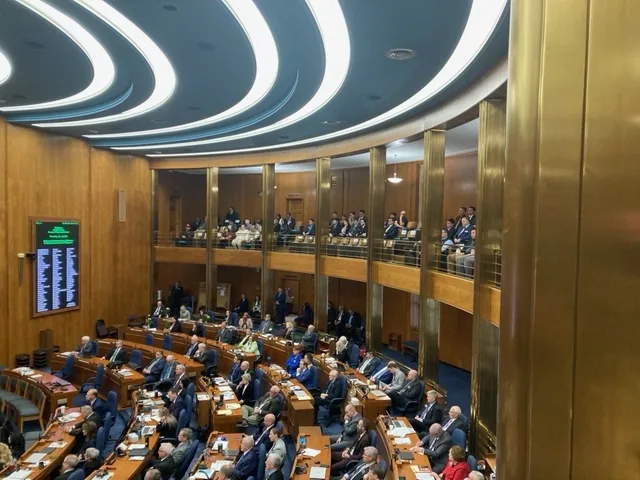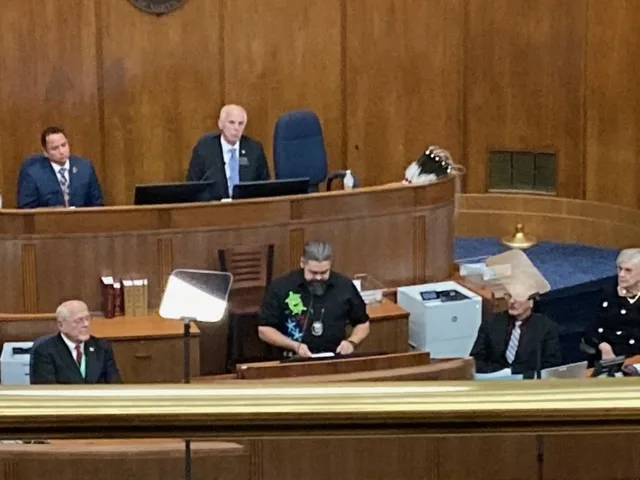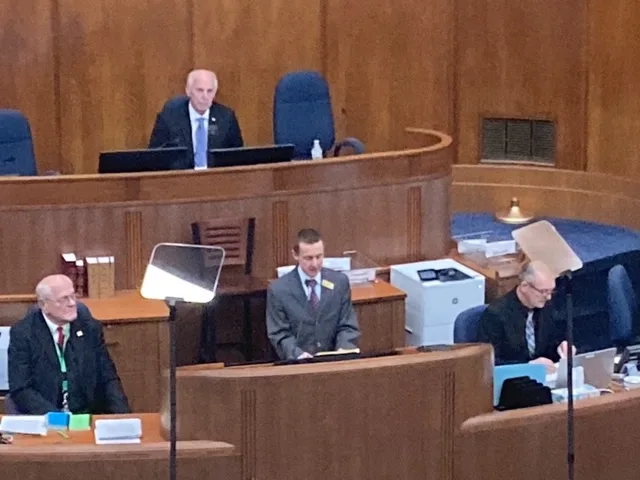

BISMARCK – The legislature began its first day of session Tuesday, preceding a light work week for lawmakers The intensity of the work is projected to increase throughout the next few weeks.
Largely ceremonial, Tuesday began with a Tribal-State relationship and State of the Judiciary message in the House chambers.
Jamie Azure, chairman of the Turtle Mountain Band of Chippewa, noted the happenings at Turtle Mountain that are helped by its intergovernmental agreements and partnerships, which includes the Turtle Mountain Recovery Center.
“Construction for this center is well underway,” said Azure. “The center is in week 18 of construction. The projected opening of our center is summer of 2024. However, we are currently open to outpatient services.”

Chief Justice Jon Jensen spoke of the $55 million project to move the judiciary branch to the Liberty Memorial Building, which will be added onto. A bill for this project was introduced during former governor Jack Dalrymple's term and has been pushed to 2023. Jensen also reported on caseloads.
“In our last annual report to you, we noted that the judicial system had 159,000 new cases per year, and 21,000 additional reopened cases,” said Jensen. “In criminal cases alone our district courts handle hundreds of jury trials. Our case loads are increasing.”

The official gaveling in of the session happened at noon, though there were no bills heard. The State of the State Address by Governor Doug Burgum began afterward. The swearing in of constitutionally elected officers, such as the Secretary of State and Attorney General, also happened Tuesday.
Representative Cory Mock, D-Dis. 18, Grand Forks, said the gaveling in is required by the Constitution of North Dakota.
“Over the years we’ve had the State of the Judiciary and the State of the Tribes and other addresses that have happened during this week,” said Mock. “Now, just because of scheduling, those were happening this morning. For legislators, there’s not any committee work today.”
Committee work will begin Wednesday and Thursday, and because there will be no floor session, those days will not be included in the 80 legislative days.
“It’s a way of having committee work without using any legislative days,” Mock explained. “So today is day one of 80, and Friday will be day two. If neither the House nor the Senate gavel in, it doesn’t count as a legislative day.”
The first week is typically pre-filed agency bills, says Mock, including technical corrections or divisions and cleanup.
“There might be some with more substance, or more noteworthy bills, but those will generally come up in the next couple weeks,” said Mock. “They try not to schedule any big heavy bills at the beginning, since everyone’s still learning how everything goes.”
With the deadline for the introduction of House bills on January 9 at 5 p.m., there are still many bills projected to be introduced. Each House member may submit five bills after the deadline, with the deadline for those being January 16. For the Senate, the first deadline is January 16, and the second is January 23.
Legislators also try to get co-sponsors to sign their bills before the deadline. If anything is revised in a bill, the co-sponsors must resign to have their signatures on the bill.
“It used to be, you had members with packets of bills and you’d have to sign each bill,” said Mock. “Everything’s electronic now. You send the email invitation, hey would you co-sponsor my bill, and then it’s all time stamped.”
